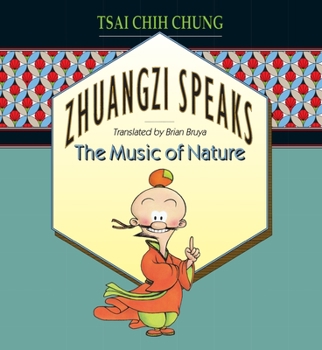Zhuangzi Speaks: The Music of Nature
Select Format
Select Condition 
Book Overview
During a period of political and social upheaval in China, the unconventional insights of the great Daoist Zhuangzi (369?-286? B.C.) pointed to a way of living naturally. Inspired by his fascination with the wisdom of this sage, the immensely popular Taiwanese cartoonist Tsai Chih Chung created a bestselling Chinese comic book. Tsai had his cartoon characters enact the key parables of Zhuangzi (pronounced jwawngdz), and he rendered Zhuangzi's most enlightening sayings into modern Chinese. Through Tsai's enthusiasm and skill, the earliest and core parts of the Zhuangzi were thus made accessible to millions of Chinese-speaking people with no other real chance of appreciating this major Daoist text. Translated into English by Brian Bruya, the comic book is now available to a Western audience. The classical Chinese text of the selections of the Zhuangzi is reproduced in the margins throughout. Evoked by the translation and the playful cartoons is the spontaneity that Zhuangzi favors as an attitude toward life: abandon presuppositions, intellectual debates, and ambitions, he suggests, and listen to the "music of nature." With the writings attributed to Laozi, the Zhuangzi contributed to an alternative philosophical ideal that matched Confucianism in its impact on Chinese culture. Over the centuries this classical Daoism influenced many aspects of Chinese life, including painting, literature, and the martial arts. It had a particularly strong effect on Chan Buddhism (Japanese Zen). For this book, Donald Munro has written an afterword that places Daoism and the Zhuangzi in historical and cultural context.





